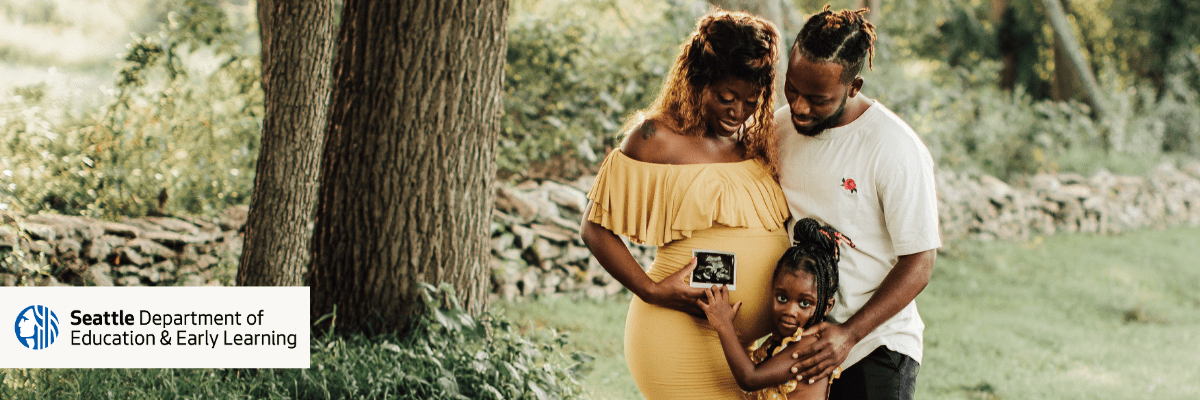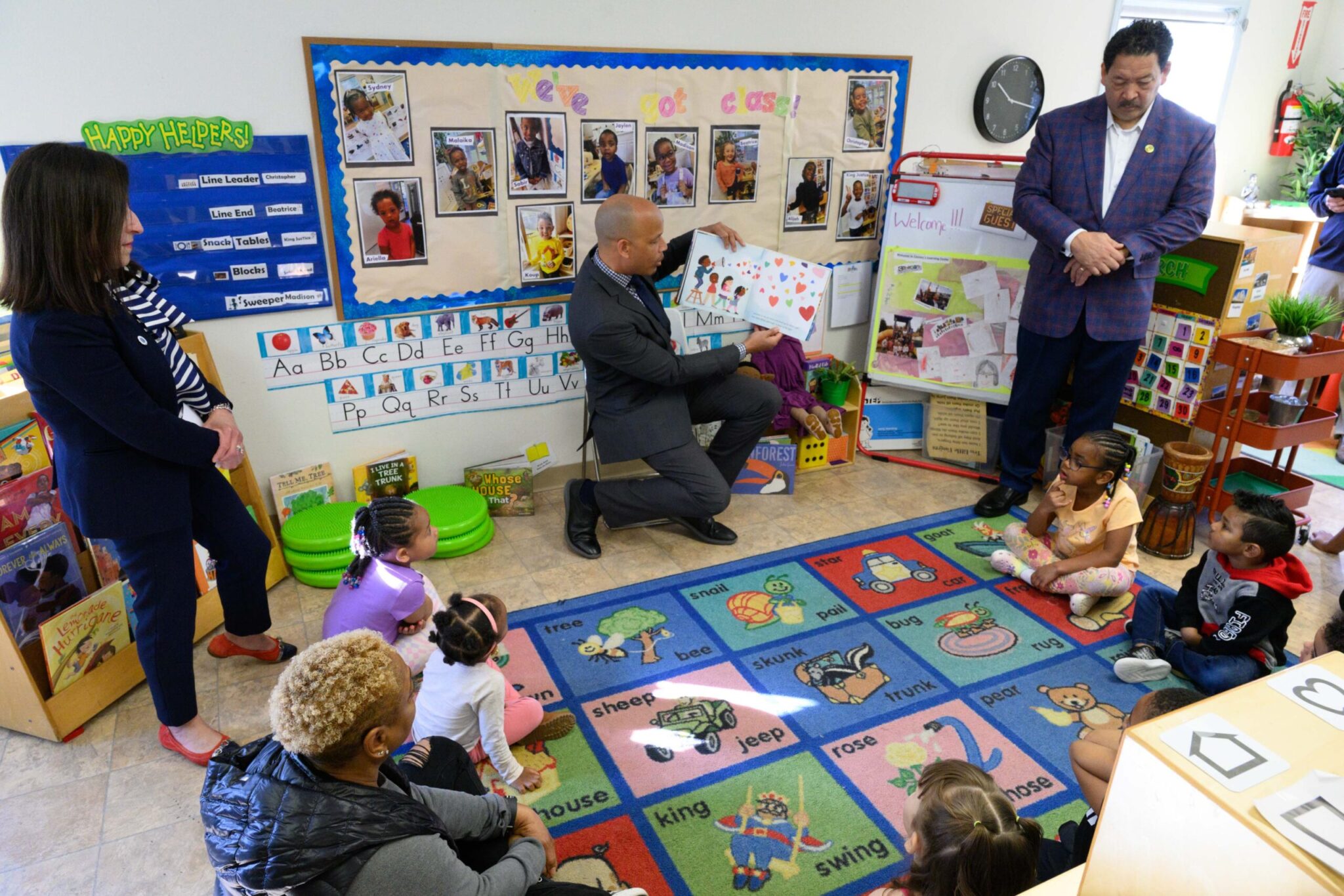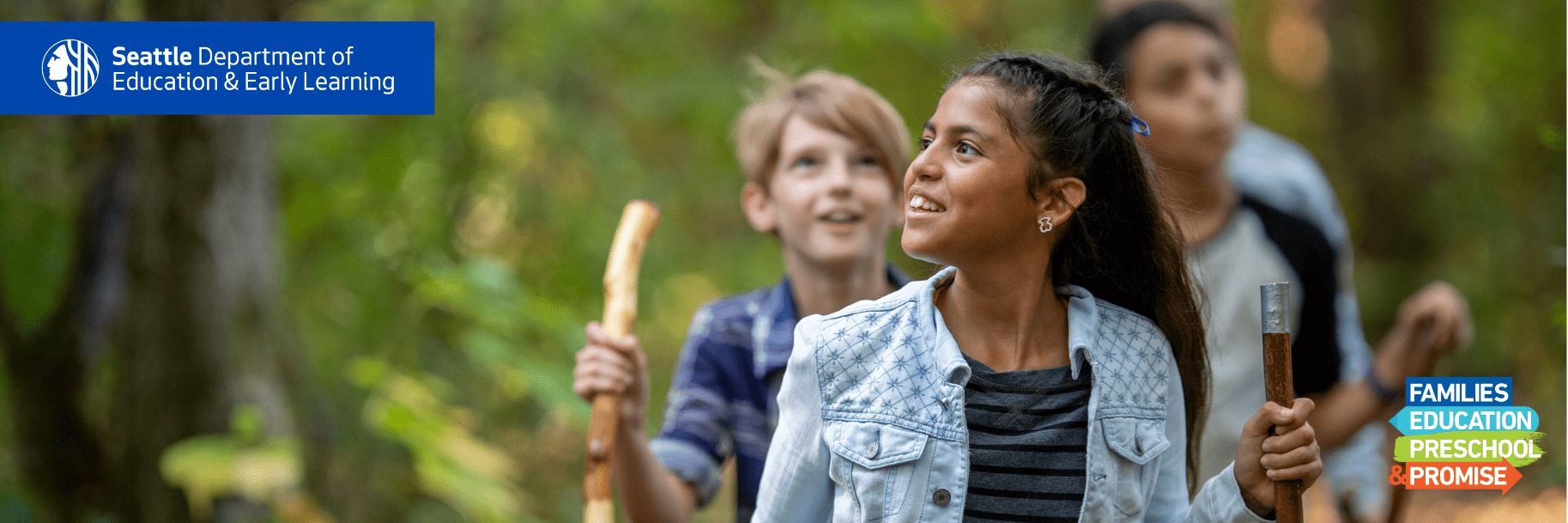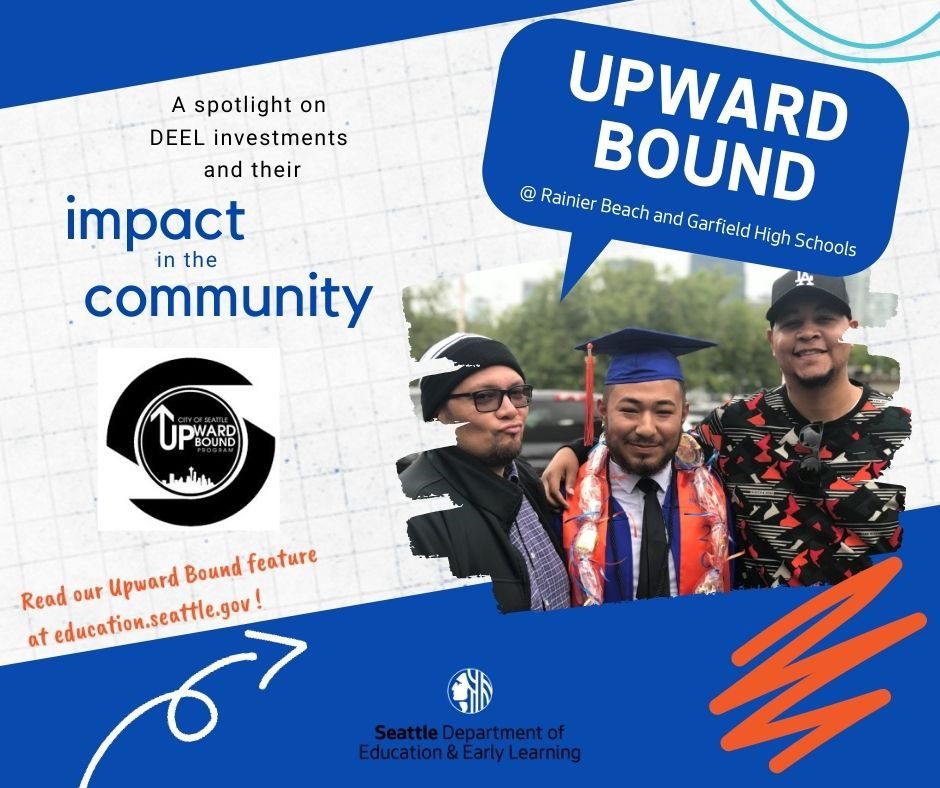
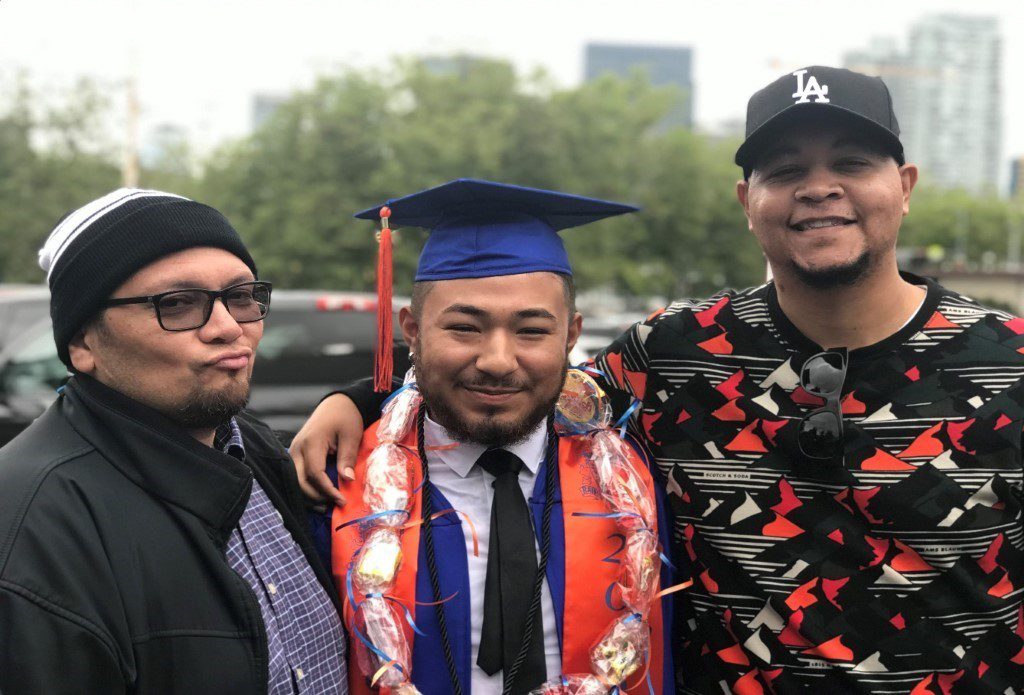
(Photo provided by Roberto Lopez)
Upward Bound is a national college-readiness program that prepares first-generation college students for higher education. Here in Seattle, Upward Bound is available to rising 9th, 10th, and 11th grade students at two participating high schools: Garfield and Rainier Beach.
In 2020, DEEL welcomed Roberto Lopez and the Upward Bound (UB) program into our K-12 & Postsecondary team. In this interview, Roberto shares his insight into Seattle’s young UB scholars and the Garfield College Network partners who help these students to thrive.
DEEL: What does it mean to be college-ready, and how does the Upward Bound program support student readiness as youth prepare for college?
Roberto Lopez (RL): We help students understand the difference between graduation and university admission requirements. The profile of a college-ready scholar is someone who does everything they can to make themselves competitive for admission selection, no matter what level of readiness they’re starting from prior to enrolling in Upward Bound. A college-ready scholar also will have researched whether the school they are committing to is the right fit academically, personally, and financially. We teach our scholars that college is much more than the classroom, library, and labs. We want our scholars to commit to a school where they will thrive in the classroom and out.
DEEL: You’ve been an Upward Bound Counselor for five years. Can you think of a UB student whose experience exemplifies the impact of the program?
RL: I am fortunate to have had the honor to work with many scholars who exemplify the goals we have for them. It’s very difficult to think of just one. My scholars who enrolled in 9th grade when I first started with the program, the [graduating] class of 2019, stand out to me the most. We’ve made significant changes during my time with Upward Bound, and those youngsters lived through it and came out thriving. Two of those scholars are now employed as tutors with the program. Of my thirteen scholars in that class, seven received scholarships from the Garfield Golden Grads alumni group, ranging from $2,000 to $4,000. Ten enrolled in four-year colleges, and three enrolled in the Seattle Colleges and Seattle Promise program.
DEEL: What barriers do you see in the education system for students of color, and how do you help students overcome these barriers?
RL: Barriers to academic achievement still exist for many of our students despite efforts to remove them, and this pandemic has only served to widen the gap. Many UB scholars didn’t have computers at home or stable wi-fi when we began schooling virtually in March. During our summer program, UB staff and teachers spent more time teaching scholars “how to” with their school-issued laptops than any previous year. We’ve impressed upon them the urgency with which they need to ramp up their skills because “the system” will not slow down to accommodate their needs. We’ve continued to offer programming throughout the school year to improve how they use technology as an academic tool, but the effect of generational poverty is the other towering barrier. Many of our families have suffered significant economic hardships because the parents are not working or if they are working, it falls on our scholars to help their younger siblings with their virtual school responsibilities at the cost of their own academic learning time. We refer our families to community supports when possible and leverage the resources we can. At Garfield, the PTSA has recognized that we serve a unique demographic of students and has stepped in and provided $2,000 in grocery gift cards to distribute to our scholars.
DEEL: How do you talk to students and families about the Upward Bound program’s benefits and help them determine if it is the right choice for them?
RL: Our scholars, like all our staff, are first-gen college-going students. So, I teach my scholars that we go to college to develop the skills to make money doing what we love. And if we do this right—if we explore careers that excite us, seek out colleges that have the environments that will support us, and learn about who we are, what we value, and what we want out of life—we can increase the likelihood of succeeding in that endeavor.
DEEL: As a UB Counselor, what approaches have you found to be most effective as you work to meet every student’s needs in their college readiness journey?
RL: This work is all about relationships. If students don’t trust you, how can you hype them up to believe in themselves when they may have never had an adult outside of their family believe in them? So, always be honest and respectful. I’ve learned to preface with scholars coming into the program that I may not always be the counselor they want, but I will always try to be the counselor they need.
DEEL: Who are some of the UB partners at Garfield High School and how have they been instrumental to student success?
RL: At Garfield, the program was fortunate to have had former principal Ted Howard (2004-2020), who believed in Upward Bound and was a champion for our scholars’ success. This laid the groundwork for many of the partnerships that now exist. The Garfield College & Career Network, which connects the school’s community-based support programs with the Garfield College & Career Specialist, leverages resources to support a college-going culture for the entire school. Last year, I worked with one of our Spanish teachers to launch a LatinX parent group where we were able to hold meetings in Spanish with the building staff and interpreters to increase the access that Spanish-speaking parents have with the building administrators and teachers. I’ve already mentioned the PTSA providing the financial supports to help our families meet basic needs. And finally, this year, I joined the Garfield Data Team, which allows me to support the school’s efforts to engage students who have high absenteeism and low grades. Going forward, this move will allow us to identify potential Upward Bound scholars as they turn the corner and are looking for the wraparound supports we provide.

______________________________________________________________________________
Upward Bound (UB) is federally funded by the U.S. Department of Education to help students earn a high school diploma and prepare them to enter and complete a post-secondary education program. In 2012, the City of Seattle Human Services Department was one of the few municipalities awarded the Upward Bound grant.
In 2020, Upward Bound joined the Department of Education and Early Learning as part of DEEL’s focus on college and career readiness and post-secondary completion. During the 2019-2020 School Year, UB served more than 100 scholars. So far this school year, more than 60 participants have been supported by the team.
Click for more information about the Upward Bound program.
______________________________________________________________________________
